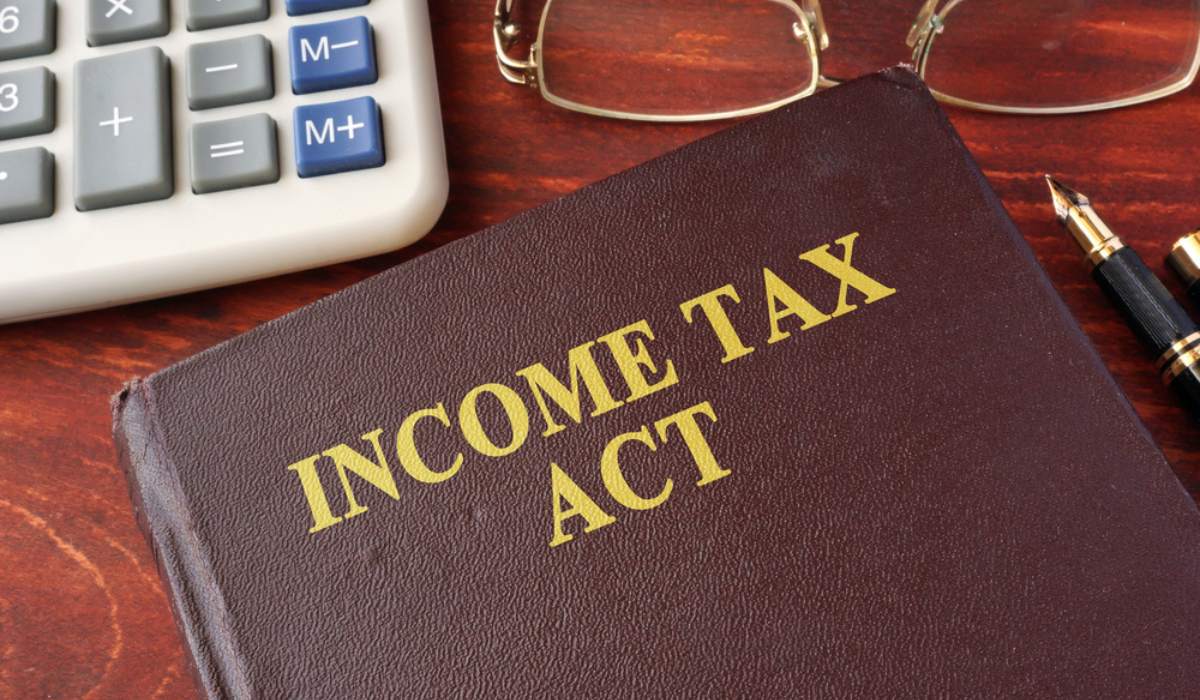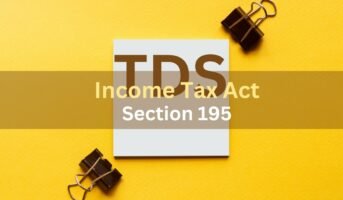Government levies income taxes on people and corporations in relation to the income or profits that such people and businesses make. Individuals and corporations are required to file an income tax return each year in order to calculate the amount of income tax that needs to be paid.
Income tax: How it operates?
- Taxable income is defined as earnings that are subject to taxation. Total income minus permissible deductions and exemptions equals taxable income. The income tax is calculated as per the applicable income tax rate.
- Various income tax rates may apply at different levels. Additionally, not every taxpayer pays taxes at the same rate. In other words, there may be differences in the rates and regulations that apply to companies’ and individual taxpayers’ income taxes. The corporate tax rate, which firms usually pay in most countries, is a fixed tax rate.
- The amount of income taxes a person must pay also depends on the amount of taxable income they make in a particular year. Depending on how much money an individual makes in a year, their income tax rate differs. Tax brackets are the various ranges of an individual’s income that determine the appropriate income tax rate.
- Additionally, the personal tax rate is frequently progressive in that it only applies to an additional unit of income and rises as income does.
- Investment income is taxed in addition to income received by people and businesses; this tax is normally in the form of a capital gains tax. Capital gains taxes are lower, which promotes investment.
Indian income tax basics
India’s income tax collection is governed by the Income Tax Act, 1961. This Act creates several classes for various individuals or assessees. For purposes of this Act, a person or assessee includes:
- One individual
- Association of Persons [AOP]
- The Hindu Undivided Family (HUF)
- A business
- Any additional assessee as defined by this Act
Income tax: Income classification
- Pensions, salaries, and other benefits are all taxed.
- Income from house property – This category of taxation applies to rental income from houses.
- Profits and gains from business or profession – This category of taxation applies to income from any business activity or profession.
- Gains from the sale of capital assets, such as mutual funds, real estate, houses, etc., are subject to taxation.
- Income from other sources – This category of taxation applies to income that is taxable but not taxed under the other four headings. For instance, interest on fixed deposits, interest on savings accounts, winnings from lotteries, etc.
Income tax slabs 2023-24
| The new tax system’s income tax brackets for the fiscal years 2023–24 | |
| Income tax slabs (In Rs) | Income tax rate (%) |
| Between 0 and 3,00,000 | 0 |
| Between 3,00,001 and 6,00,000 | 5% |
| Between 6,00,001 and 9,00,000 | 10% |
| Between 9,00,001 and 12,00,000 | 15% |
| Between 12,00,001 and 15,00,000 | 20% |
| Above 15,00,001 | 30% |
The following are the changes between the current new tax regime (effective till FY 2022-23) and the planned new tax regime for FY 2023–2024:
- The basic exemption threshold has increased from Rs 2.5 lakh to Rs 3 lakh.
- There are now only five income tax slabs instead of the previous six.
- The taxable income threshold for the tax credit provided by Section 87A has increased from Rs 5 lakh to Rs 7 lakh. The tax refund has quadrupled from Rs 12,500 to Rs 25,000.
- Under the new tax system, the maximum surcharge rate was cut from 37% to 25%. For salaried people and retirees, a standard deduction of Rs 50,000 was established starting in FY 2023–2024.
See also: Income tax calculator: Step-wise guide to using an official tax calculator
What is income tax and why do students need to pay it?
Income tax that one has to pay to the government on the earnings they make. Since students are not income-generating individuals, they don’t have to pay income tax. This is true of the grants or scholarships received by a student, too.
How can students determine their taxable income?
If a student receives a stipend as part of their studies which exceeds the basic exemption limit, they have to calculate their tax liability pay taxes accordingly.
FAQs
How can one file their income tax return?
An income tax return can be filed online using the e-filing portal of the Income Tax Department of India.
What documents does one need to file their income tax return?
To file an income tax return, the following documents are required PAN (Permanent Account Number), Aadhaar card, Bank account details (account number, IFSC code), TDS/TCS certificates (Form 16/16A), Details of income from various sources (salary, interest income, rental income, etc.), Details of investments and expenses that can be claimed as deductions, Any other relevant documents.
How can one check the status of their income tax return?
One can check the status of their income tax return on the e-filing portal of the Income Tax Department of India by logging in with their PAN and password.
Housing News Desk is the news desk of leading online real estate portal, Housing.com. Housing News Desk focuses on a variety of topics such as real estate laws, taxes, current news, property trends, home loans, rentals, décor, green homes, home improvement, etc. The main objective of the news desk, is to cover the real estate sector from the perspective of providing information that is useful to the end-user.
Facebook: https://www.facebook.com/housing.com/
Twitter: https://twitter.com/Housing
Email: [email protected]











